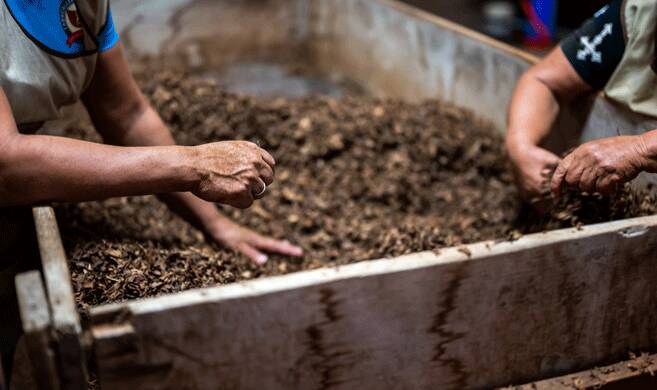The current waste management systems do not sort biowaste separately (except in few countries), although it represents about 38% of French household’s waste tonnage. Treating this waste as regular waste is highly inefficient both from economic and ecologic perspectives. Landfilling waste is costly and has negative externalities. Incinerating biowaste in waste-to-energy facilities is highly inefficient in energy production, potentially increasing CO2 emissions. This underlines the importance of having an alternative management strategy when it comes to biowaste. One possible solution is to turn households' biowaste into compost to avoid negative externalities related to a regular waste management system while producing a high-quality product that can increase soil fertility and reduce erosion rates.
The biggest obstacle to biowaste-based compost production is the collection costs. Households produce small volumes of biowaste weekly, requiring collection companies to operate in large areas to acquire sufficient amounts of waste. Nonetheless, biowaste-based compost sales could cover the necessary expenses if the right consumers are targeted, and the operating costs are carefully optimized. Organic farmers, for example, are likely to pay a high premium to buy biowaste-based compost. Similarly, ‘green’ customers focusing on urban agriculture can purchase biowaste-based compost at a price of up to 100 times more than yard-debris-based compost!
I found that even with relatively high production costs, a company could be profitable by selling relatively low amounts of compost annually.
Of course, cost minimization is an imperative element for a biowaste-based compost-producing company. Yet, our elementary analysis suggests that even with relatively high production costs (of about €2/kg of compost), a company could be profitable by selling relatively low amounts of compost annually (200 tons approximately). Hence, even at relatively high fixed and variable costs, the breakeven point is easily achievable. This could be done in almost every French local collectivity.
With the law on the separation of organic waste mandating local collectivities in France to provide individuals with a dedicated biowaste sorting service by 2024, a tremendous opportunity exists for ambitious compost producing companies willing to address environmental issues.








